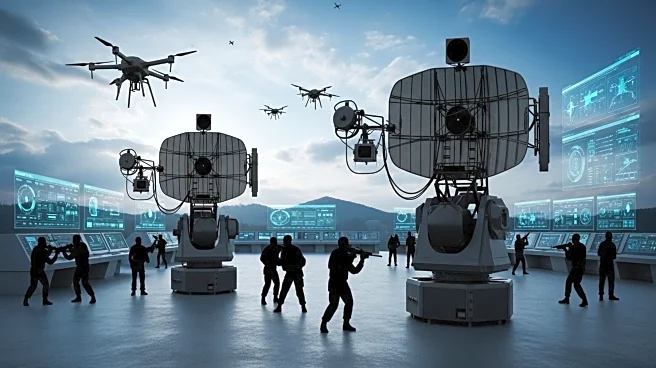What's Happening?
NATO members convened in Riga, Latvia, to discuss strategies for responding to Russian drone incursions. The meeting focused on enhancing coherence and synchronization across air policing activities. Recent Russian incursions have prompted NATO countries to consider various response options, including tracking and shooting down drones. Poland has taken a firm stance, indicating it will act independently if necessary. The discussions are part of Eastern Sentry, a mission launched in response to Polish incursions, which aims to convert air policing to a broader air defense mission. Denmark plans to contribute additional resources to support these efforts.
Why It's Important?
The coordination among NATO members highlights the alliance's commitment to addressing security threats posed by Russian military actions. The shift from air policing to air defense reflects an increased focus on proactive measures to protect member states. The potential drawdown of U.S. forces in Europe, as indicated by Defense Secretary Pete Hegseth, raises concerns about NATO's future capabilities. The new U.S. national defense strategy may de-emphasize Europe, prompting NATO members to reassess their defense posture and resource allocation. These developments could influence geopolitical dynamics and security policies in the region.
What's Next?
NATO members will continue to refine their strategies and rules of engagement to address Russian threats effectively. The alliance must navigate the potential reduction of U.S. military presence in Europe and adapt to changing defense priorities. Future incidents involving Russian incursions are likely, requiring NATO to respond decisively to maintain regional stability. The ongoing discussions will shape the alliance's approach to security challenges and its ability to deter aggression from adversaries.










